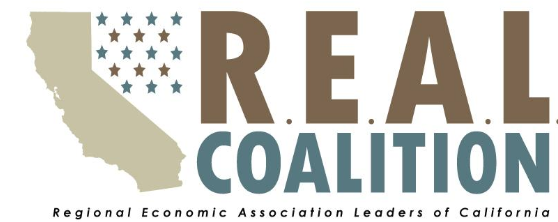The REAL Coalition focuses its legislative and policy advocacy in four distinct areas:
Transportation Infrastructure, Education & Workforce Development, Water & the Environment,
and Economic Competitiveness.
Transportation Infrastructure
As a Coalition, REAL has actively supported a number of initiatives and policies that address California's infrastructure needs. There is a proven way forward. Other states and nations have saved taxpayers millions while providing needed infrastructure upgrades by partnering with the private sector. New avenues for infrastructure development are doubly important in these challenging economic times. The aforementioned proposals would catalyze new projects, stimulating jobs and economic activity to help reinvigorate California’s economy. This increased economic activity would also bolster tax revenues, mitigating the need for painful spending cuts or tax increases.
Education & Workforce Development
The REAL Coalition continues their focused and robust efforts to lead in both advocacy and direct efforts to ensure that California remains competitive in a global economy. The REAL Coalition works to guarantee a strong future for the economic and overall well-being of our communities, ALL youth, and its residents, including employers having access to the talent they need from California’s students.
The five main macro goals of the committee are:
Early Care & Education (ECE): Support childcare and early childhood education policies that provide affordable access for vulnerable children and families, especially Communities of Color; support culturally and linguistically relevant high-quality care and justly compensate early education professionals.
K-12 Education: Advocate for the adoption and quality implementation of policies that support all students, especially Communities of Color and Opportunity Youth, for college and career readiness.
Post-secondary Education: Support policies that ensure post-secondary education remains accessible and affordable to all students, especially Communities of Color and Opportunity Youth.
Workforce Development: Support policies that ensure our workforce development systems remain globally competitive, racially equitable, and inclusive for all Californians, especially Communities of Color and Opportunity Youth.
Cradle-to-Career Issues: Build, strengthen and align a talent development pathway system through cradle-to-career.
Water & Environment
The water supply system that supports most of California’s residents, businesses and underpins its ecological health is facing unprecedented challenges. Coordinated near- and long-term actions to address constraints and conflicts are needed if we are to realize the co-equal values of adequate water supply for California, and ecosystem health and revitalization. Given the breadth and statewide impact of the crisis, the interest of the business community is coincident with that of the general public. The committee focuses on: Water supply reliability and governance, drought resilience, and ensuring there is adequate funding and financing of critical water infrastructure. Our wins include: Safe, Clean, and Reliable Drinking Water Supply act of 2010, The Water Quality, Supply, and Infrastructure Improvement Act of 2014, and The Parks, Environment, and Water Bond of 2018.
Increasing and preserving access to housing that is affordable in areas of opportunity helps families climb the economic ladder, leading to greater community development and bolstering economic productivity and job creation. Yet, the cost to rent or purchase housing is becoming increasingly less affordable to millions of Californians. According to the Traditional Housing Affordability Index from the California Association of Realtors, only 28% of households in California can afford to purchase a median-priced existing single-family home, compared to 54% nationally. California leaders must do more to address the lack of affordable and workforce housing in our state. The REAL Coalition supports:
Incentives for local governments and developers to build more affordable and workforce housing, including accessory dwelling units.
A reform of the California Environmental Quality Act (CEQA) to streamline the approval process of housing developments and reduce the number of lawsuits that seek to delay projects.
Tenant protections to ensure that long-time residents are not be displaced from their communities.
Enhancing existing laws to ensure that local governments meet their housing development goals.
Efforts to guarantee approval of housing developments that meet criteria established by local governments.
Increasing higher density housing (both market rate and affordable) near job centers and transportation hubs.
